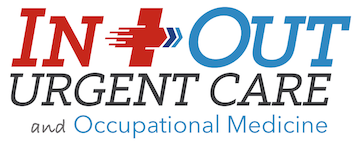Seasonal allergies, also known as hay fever or allergic rhinitis, are a common health concern that affects millions of people every year. These allergies are caused by an overactive immune response to outdoor allergens such as pollen, mold spores, and grass. In an effort to protect the body, the immune system releases chemicals called histamines, often leading to uncomfortable symptoms like sneezing, nasal congestion, and itchy, watery eyes. As practitioners at In & Out Urgent Care, we understand the impact seasonal allergies have on the quality of life for both adults and children.
This article will explore preventive measures to take during allergy season and the various treatment options available at our facility.
Understanding the Triggers: Pollen, Mold Spores, and Grasses
To effectively manage seasonal allergies, it is essential first to understand what triggers your symptoms. The primary culprits responsible for seasonal allergies are outdoor allergens such as pollen, mold spores, and grass. These allergens can vary based on the time of year, with different plants releasing pollen at different times throughout the season. For instance:
– Tree pollen typically peaks in the spring months.
– Grass pollen becomes more problematic in the late spring and summer months.
– Weed pollen, particularly from ragweed, is most abundant in the fall.
Mold spores can also be seasonal, with concentrations typically increasing in warmer, damp conditions.
By familiarizing yourself with the allergens that affect you the most, you can better tailor your preventive measures and treatment strategies to achieve optimal relief and protection.
Proactive Measures: Minimizing Allergen Exposure
Reducing exposure to allergens is a crucial component of managing seasonal allergies effectively. While it is unrealistic to avoid outdoor allergens entirely, you can take several steps to minimize their impact on your life:
- Track local pollen levels: Stay informed about the daily pollen count in your area to help you make informed decisions about outdoor activities.
- Plan your time outdoors wisely: Pollen counts are typically highest in the early morning and late afternoon. If possible, plan outdoor activities during times when pollen levels are lower or on days with lower pollen counts.
- Upgrade your home environment: Use air purifiers with HEPA filters, keep windows and doors closed, and regularly clean bedding and other surfaces to minimize allergen infiltration into your home.
- Practice proper personal hygiene: Showering after outdoor activities and frequently washing your hands can help to reduce pollen exposure on your skin and hair.
- Modify your wardrobe: Wear wraparound sunglasses, hats, and clothing that covers your skin to minimize allergen exposure.
Treatment Options: Finding Relief from Symptoms
At In & Out Urgent Care, we offer various treatment options and services to help you manage your seasonal allergy symptoms effectively. These services include:
- Allergy testing: Our skilled healthcare professionals can conduct allergy tests to identify the specific allergens triggering your symptoms, enabling a targeted treatment plan.
- Prescription medications: Depending on the severity of your allergies, prescription medications such as antihistamines, corticosteroids, and decongestants may be recommended.
- Over-the-counter remedies: If your symptoms are relatively mild, our team can help recommend over-the-counter treatments such as oral antihistamines, nasal corticosteroid sprays, and eye drops to relieve symptoms.
- Personalized treatment plans: Our healthcare professionals will work closely with you to develop a customized treatment plan that addresses your specific allergy triggers and ensures maximum relief from symptoms.
Educate, Empower, and Prevent: Seasonal Allergy Management Strategies
As experts in managing seasonal allergies, we believe that an informed and proactive approach is essential for effectively controlling these conditions. By educating yourself about your allergy triggers, actively addressing your symptoms, and implementing preventive strategies, you can successfully navigate the allergy season.
- Educate: Understand your allergy triggers and stay informed about the allergens affecting you.
- Empower: Make data-driven decisions about your outdoor activities and take an active role in your allergy management plan to control your symptoms.
- Prevent: Incorporate preventive measures into your daily routine to minimize allergen exposure and reduce the severity of symptoms.
Breathe Freely with In & Out Urgent Care
Seasonal allergies don’t have to dictate your quality of life, and with the help of In & Out Urgent Care, you can triumph over these frustrating symptoms. By pairing our expert guidance with proactive prevention and effective symptom management, you’ll be ready to embrace the outdoors and breathe freely in any season. Reach out to our skilled healthcare professionals at our walk-in clinic for more information on allergy testing, treatment options, and personalized strategies for managing your seasonal allergies.



